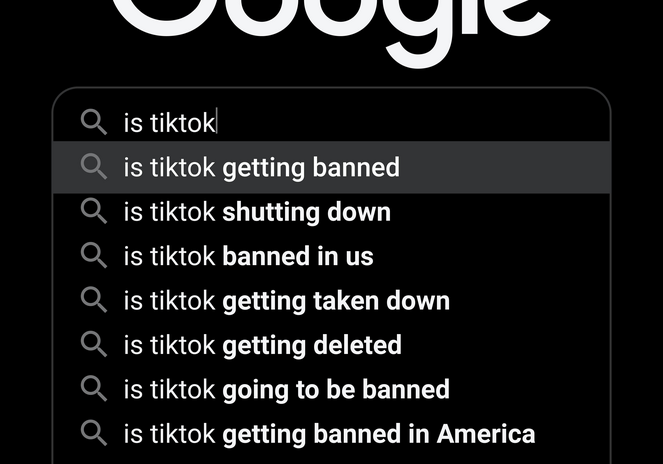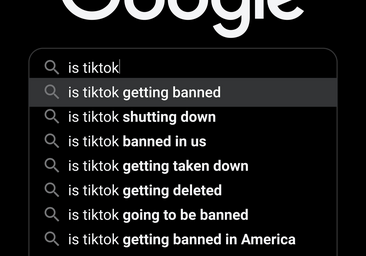Like much of Gen Z, TikTok may already be a staple app on your phone. Even if not, it is likely you have heard of the news and rumors that have been swirling around the platform for recent months. So, here’s a simplified breakdown of what’s going on with Trump and his vendetta against TikTok.
With over 100 million users in the United States alone, TikTok has quickly become a global sensation. However, the Chinese-owned video app has raised some red flags about its security, or lack thereof. It is no surprise to any TikTok user that the app’s algorithm is extremely specific to one’s interests or life in general. While this feature allows for a very personalized “For You Page,” its degree of sensitivity and specificity can also be creepy at times.

TikTok’s Privacy Policy, which can be found online, states that the app has access to users’ “IP address, unique device identifiers, model of your device, your mobile carrier, time zone setting, screen resolution, operating system, app and file names and types, keystroke patterns or rhythms, and platform”. This information becomes accessible as soon as you enter the platform on your device. TikTok also collects information about your browsing and search history, geolocation-related data, and cookies.
While many apps obtain the same amount of data from users, the concern in this case is the party behind the app. The Chinese company ByteDance, which has ownership over TikTok, has raised questions in the Trump administration as it is feared that the app could be used as a spying tool. This prompted President Trump to sign an executive order in August that would ban TikTok in the United States if the company’s US operations were not taken over by an American company by September 20.
Although TikTok has denied accusations that the information collected on its users is accessible by the Chinese government, Trump’s order has prompted companies such as Microsoft, Walmart, and Oracle to place bids to take over TikTok’s US operations. While Microsoft’s offer was denied by ByteDance on September 13, Oracle’s bid was accepted but must still be thoroughly reviewed before any definitive result is reached.
TikTok’s security concerns have been obvious to regular users for quite some time now. A quick and singular text conversation in iMessage about a very specific topic can prompt plenty of related videos on one’s For You Page merely hours later. This extreme personalization raises concerns about one’s privacy and social media footprint.

It must also be noted that TikTok is extremely popular among members of Generation Z who use the app as a platform to voice their opinions. These opinions are very frequently anti-Trump and several movements have been formed that aim to sabotage aspects of his reelection campaign. Over the summer, a Trump rally that was expected to sell out was nearly empty as a result of a movement on TikTok that prompted teenagers and young adults to reserve tickets in large quantities with no expectation of actually attending. Conveniently enough, Trump’s vendetta against TikTok gained momentum after these incidents.
Although the fate of TikTok is uncertain, users are still able to use the app and continue to do so daily. The impact of TikTok on pop culture is immense and the company clearly will not go down without a fight.




